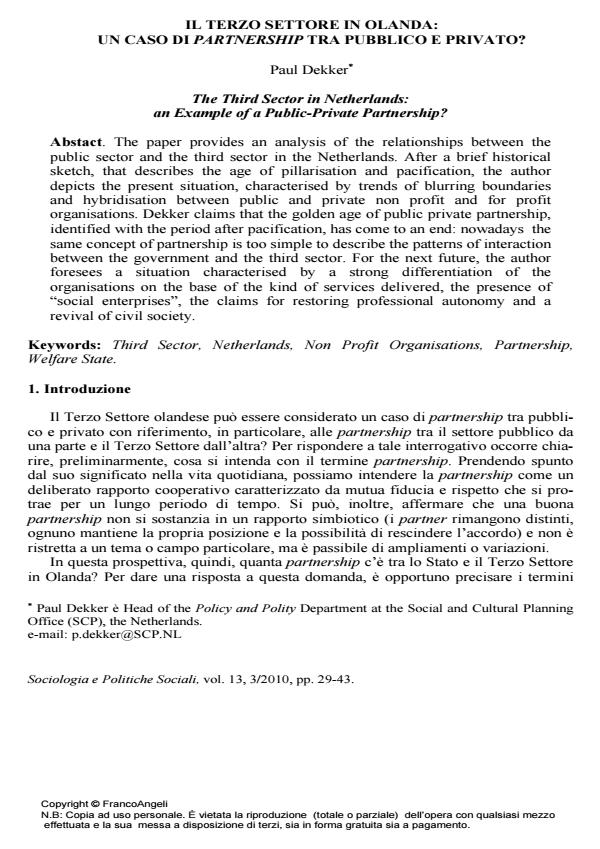Il terzo settore in Olanda: un caso di partnership tra pubblico e privato?
Journal title SOCIOLOGIA E POLITICHE SOCIALI
Author/s Paul Dekker
Publishing Year 2010 Issue 2010/3
Language Italian Pages 15 P. 29-43 File size 308 KB
DOI 10.3280/SP2010-003003
DOI is like a bar code for intellectual property: to have more infomation
click here
Below, you can see the article first page
If you want to buy this article in PDF format, you can do it, following the instructions to buy download credits

FrancoAngeli is member of Publishers International Linking Association, Inc (PILA), a not-for-profit association which run the CrossRef service enabling links to and from online scholarly content.
The paper provides an analysis of the relationships between the public sector and the third sector in the Netherlands. After a brief historical sketch, that describes the age of pillarisation and pacification, the author depicts the present situation, characterised by trends of blurring boundaries and hybridisation between public and private non profit and for profit organisations. Dekker claims that the golden age of public private partnership, identified with the period after pacification, has come to an end: nowadays the same concept of partnership is too simple to describe the patterns of interaction between the government and the third sector. For the next future, the author foresees a situation characterised by a strong differentiation of the organisations on the base of the kind of services delivered, the presence of "social enterprises", the claims for restoring professional autonomy and a revival of civil society.
Keywords: Third Sector, Netherlands, Non Profit Organisations, Partnership, Welfare State
- Partnership sociali e terzo settore: indicazioni dai dati del censimento istat sulle istituzioni non profit Lucia Boccacin, in SOCIOLOGIA E POLITICHE SOCIALI 1/2015 pp.77
DOI: 10.3280/SP2015-001005
Paul Dekker, Il terzo settore in Olanda: un caso di partnership tra pubblico e privato? in "SOCIOLOGIA E POLITICHE SOCIALI" 3/2010, pp 29-43, DOI: 10.3280/SP2010-003003